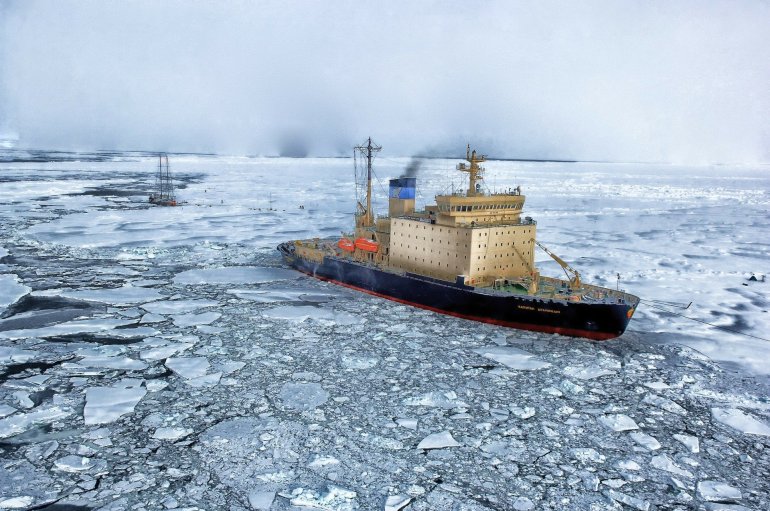The ship "Polarstern" of the German "Alfred Wegener Insstitute" returned to the port of "Bremerhaven", after 389 days of drifting across the Arctic trapped in ice, allowing scientists to collect vital information on the effects of global warming in the region .
Expedition leader Marcus Rex said he and his team of 300 scientists from 20 countries witnessed a "truly wonderful and unique place".
He added in a press conference covered by the French Press Agency and reported by Science Alert on October 12th, "We must really do our best to preserve this world ... for the sake of future generations, and take advantage of the opportunity." Meager, we still have to do it. "
Before their return, Rex told AFP that the scientists had first seen the tragic effects of global warming on the ice in the region, which is considered "the epicenter of climate change."
"We have seen how the Arctic Ocean dies ... We saw this process directly outside our windows, or when we walked on the fragile ice," he said.
Emphasizing the amount of sea ice melting, Rex said that the expedition was able to sail through large patches of open water "sometimes extending up to the horizon ... in the Arctic itself, we found highly corrosive ice, melted, thin and fragile."
The team witnessed long months of complete darkness and temperatures as low as -39.5 Celsius (Polarstern - Wikipedia)
North Pole is free of ice
If the warming trend continues in the Arctic, Rex said, within a few decades we will have a "polar region free of ice in the summer."
MOSAIC's Polarstern mission has spent more than a year gathering data on the atmosphere, oceans, sea ice, and ecosystems to help assess the impact of climate change on the region and the world.
To conduct the search, 4 observation sites were established on sea ice in a radius of 40 km (25 miles) around the ship.
The researchers collected samples of water from under the ice during polar night to study phytoplankton and bacteria, and to better understand how the marine ecosystem would function under extreme conditions.
The team found in the Arctic ice, highly corrosive, melted, thin, and flaky (Pixabay)
The 140-million-euro ($ 165 million) expedition returned 150 terabytes of data and more than 1,000 ice samples.
Rex said the team measured more than 100 parameters almost continuously throughout the year, and hoped the information would provide "a breakthrough in understanding of the Arctic and the climate system."
"For us, the second stage starts, which is the stage of data analysis, where a lot of data is back with the ship, and we will probably be busy with it for the next ten years," says Thomas Crumpen, a sea ice physicist.
A lot of information will feed into developing models to help predict what heat waves, torrential rains or storms might look like in 20, 50 or 100 years.
60 polar bears
Since the ship's departure from Tromsø, Norway, on September 20, 2019, the crew has witnessed long months of complete darkness, temperatures as low as -39.5 degrees Celsius, and more than 60 polar bears.
A bullet had to be fired to warn a polar bear was too close.
But the biggest threat was from the coronavirus pandemic in the spring, which left the crew stranded in the Arctic for two months.
A multinational team of scientists was to fly as part of a scheduled relay to comfort those who had already spent several months on the ice, but the plan had to be redrawn when flights were canceled around the world as governments scrambled to limit the spread of the coronavirus. .
A bullet had to be fired to warn a polar bear got too close (Pixabay)
During the expedition, the German ship passed a zigzag line through 3,400 kilometers of ice along a windy road known as pole drift.
The trip was a huge logistical challenge, not least when it came to feeding the crew during the first three months, and the ship's cargo included 14,000 eggs, 2,000 liters of milk and 200 kilograms of turnip, a rootstock plant.
Radiance Calmer, a researcher at the University of Colorado - who was on board the Polarstern from June to September - told AFP that stepping out on the ice was a "magical" moment.

